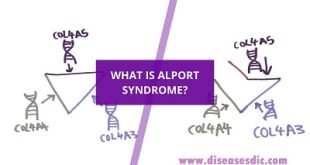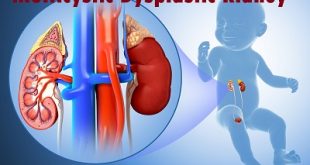General Description
Maple syrup urine disease (MSUD) is a rare autosomal recessive disorder, in which the defect in the Branched Chain Ketoacid Dehydrogenase (BCKD) enzyme causes irregular amino acid metabolism. This leads to accumulation of protein in the body. The disease is characterized by urine that smells like maple syrup due to which this condition became the name of the disease. The other names for this condition are as follows.
- Congenital Infantile Lactic Acidosis due to LAD Deficiency
- Branched Chain Alpha-Ketoacid Dehydrogenase Deficiency
- Lactic Acidosis due to Lipoamide Dehydrogenase Deficiency
Pathophysiology
- Maple syrup urine disease (MSUD) is resulted due to the deficiency in Branched Chain α-Ketoacid Dehydrogenase (BCKD). This enzyme plays a vital role in the catabolism of the branched-chain amino acids.
- Deficiency in the Branched Chain α-Ketoacid Dehydrogenase leads to the accumulation of the enormous amount of leucine, isoleucine, and valine in the body.
- The main reason behind this deficiency is due to the mutation in genes such as BCKDHA, BCKDHB, DBT, and DLD.
- Lack of BCKD role in the amino acid metabolism causes certain problems such as brain dysfunction and leading to mental retardation, physical disability, if not treated even death may occur.
Types of MSUD
There are four sub-types of maple syrup urine disease: classic, intermediate, intermittent and thiamine-responsive.
Classic MSUD: It is the most common form of MSUD with very low or not any enzyme activity of 2% less than normal. The child with MSUD exposes symptoms within very few days after the onset of the disease. This type has generally poor tolerance on branched-chain amino acids and so the proteins must be reduced in the everyday diet.
Intermediate: It is different from the classic type. Patient with intermediate MSUD have the high tolerant level of enzyme activity and can tolerate a large amount of leucine. However, the, if an intermediate MSUD patient is with ill or in fasting, they will react like classic MSUD. Prevention and management are similar to the classic type of MSUD.
Intermittent: Because of the greater enzyme activity, this type is a milder form of the disease. Many children with this type of MSUD do not have symptoms until they reach 12 to 24 months of age. When the child is in illness or fasting, the levels of branched-chain amino acids become elevated and the disease become prompt then the child goes into a metabolic disaster.
Thiamine-responsive: As the name suggests, enormous doses of thiamine into the child increases the enzyme activity then, as a result, it breaks down the leucine, isoleucine, and valine. Constraint amount of protein is needed for such rare types of MSUD.
Epidemiology
- Among worldwide Maple syrup urine disease (MSUD) affects about 1 out of 185,000 babies. MSUD is more common in certain ethnic groups but also it is seen in many countries.
- Research studies show that about 1 out of every 380 babies from the Old Order Mennonite population is affected by this condition.
- It is also common in French Canadian ancestry and Ashkenazi Jewish ancestry.
Causes of maple syrup urine disease
It is mainly caused by mutations in three different types of genes such as BCKDHA, BCKDHB, and DBT. This gene mutation results in decreased activity of human, chain ketoacid dehydrogenase complex (BCKAD) enzymes, which are responsible for the breakdown of amino acids in a protein.
Causes of MSUD
The absence of group enzyme breaks down different amino acids such as leucine, Isoleucine, and Valine. If those amino acids cannot be broken down and it will deposits into the blood and cause some other problems.
MSUD is also caused by the inherited parents. If both have a defective gene doesn’t affect them, but they are carriers, Which means they can pass the defective gene to their offspring’s.
Symptoms
Symptoms and severity of the maple syrup urine disease will vary patient to patient and largely relates to the amount of the residual enzyme activity. Some of the symptoms include:
- Maple syrup smell from urine, ear wax, sweat and ataxia
- There may be temporary episodes of extreme hypotonia
- Feeding difficulties
- Neurological impairments
- Developmental delays of varying degrees
- Coma
- Vomiting
- Lethargy
- Seizures
- Brain damage
A) Normal urine and B) Maple syrup urine
Complications of maple syrup urine disease
If maple syrup urine disease is untreated the possible complications may occur:
- Loss of bone mass
- Inflammation of pancreas
- Intracranial hypertension
- Lack of blood flow to the brain
- Metabolic acidosis (blood contains high level of acidic contents)
- Coma
- Uncontrolled muscle tightness or spasticity
- Life-threatening complication may also develop such as death when they untreated
Diagnosis and test
MSUD is diagnosed by measuring the levels of three amino acids in blood that are not metabolized properly. The diagnosis includes:
- Urine amino acid test
- Plasma amino acid test
- Early diagnosis should be done for infants
Treatment of maple syrup urine disease
- Treatment at early stages can reduce the complication of the MSUD. The main aim of the treatment is to reduce the excess amino acid accumulation in the blood. It can be carried out by eating protein-free diet. Fluids, sugar, and fats are given through the veins.
- Dialysis your belly or vein to reduce the abnormal level of substances from your blood
Nutritional diet therapy
The main aim of this therapy is to reduce the intake of these three amino acids, mainly Leucine, without adjusting the nutrients for the infant’s growth. For a specific period of time, Vitamin B1 or thiamine can also administer, in order to identify the thiamine response which may be useful to prove.
Prevention of maple syrup urine disease
There are no methods for prevention, but some of the prevention tips may exclude you from the MSUD.
- Genetic test or genetic counseling has to be carried out for people who want to have children and who have a family history of MSUD
- Dietary management of food without Leucine, Isoleucine, and Valine
- Frequent amino acid monitoring in blood
- Currently, research on MSUD is going on to explore proper treatment and control of the MSUD
 Diseases Treatments Dictionary This is complete solution to read all diseases treatments Which covers Prevention, Causes, Symptoms, Medical Terms, Drugs, Prescription, Natural Remedies with cures and Treatments. Most of the common diseases were listed in names, split with categories.
Diseases Treatments Dictionary This is complete solution to read all diseases treatments Which covers Prevention, Causes, Symptoms, Medical Terms, Drugs, Prescription, Natural Remedies with cures and Treatments. Most of the common diseases were listed in names, split with categories.








every educative but some terminologies must be explain in it simplest form.
ok sir. thanks for your feedback. we will work it out as early as possible.
Is well Organized.
A very nice rare interesting genetic topic .Pleasant reading indeed. Thanks.
in the urine pus cell are present …in how medisen use
To control infections, doctors may suggest antibiotics
If the condition is caused by kidney or bladder stones, it is necessary to remove the stones by dissolving it or using any other method.